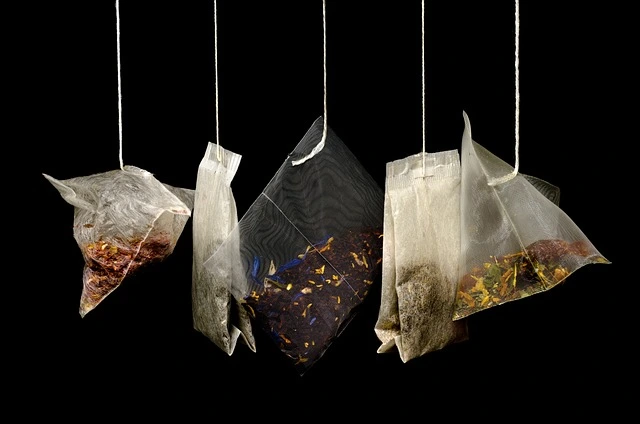Maximizing Tax Efficiency for Your Specialty Tea Business: Inventory Costs and Beverage Sales
Tea fans can enjoy a one-of-a-kind experience at specialty tea shops, which combine a diverse selection of high-quality teas with a pleasant atmosphere. However, maintaining a successful tea shop necessitates meticulous financial planning, especially regarding taxes. This guide delves into key tax planning tactics for specialty tea stores, with a focus on inventory expenses, beverage sales, and maximizing tax deductions.
1. Understanding Inventory Costs:
A. Cost Of Goods Sold (COGS):
Definition: COGS includes all direct expenses for producing or procuring the tea you sell, such as raw ingredients, shipping, and storage.
Calculation: To calculate COGS, add the beginning inventory to the total purchases made during the year, then deduct the ending inventory.
B. Inventory Valuation Methods:
FIFO (First In, First Out): The assumption is that the oldest inventory goods are sold first.
LIFO (Last In, First Out): The assumption is that the most recently purchased things would be sold first.
Weighted Average: COGS is calculated by averaging the cost of all inventory items.
C. Tax Implications Of Inventory Valuation:
FIFO vs. LIFO: Choosing the correct method can affect your taxable income. FIFO typically results in lower COGS and higher taxable revenue when prices rise, whereas LIFO leads to higher COGS and lower taxable income.
2. Maximizing tax deductions.
A. Business Expenses:
Rent And Utilities: Deduct the cost of renting your shop space and utility bills.
Salaries and Wages: Deduct the salaries, wages, and benefits paid to employees.
Marketing and Advertising: Deduct the costs of promoting your tea shop, such as internet advertising, fliers, and promotional events.
B. Depreciation:
Equipment Depreciation: Subtract the cost of furnishings, POS systems, and tea brewing machines from the total cost of the equipment throughout its useful life.
Section 179 Deduction: Allows you to deduct the entire cost of specific equipment in the year it is acquired, rather than depreciating it over time.
C. Vehicle Expenses:
Standard Mileage Rate: Deduct a set amount for each mile driven for business purposes.
Actual Expense Method: Deduct actual expenses for business usage of your car, including gasoline, maintenance, and insurance.
3. Managing Beverage Sales.
A. Sales Tax Collections:
Understanding Sales Tax: Ensure that you collect and remit the proper sales tax on tea sales by state and local rules.
Sales Tax Nexus: Determine whether you have a sales tax nexus in various states if you sell online or have many locations.
B. Maintaining Records:
Point of Sale (POS) Systems: Use POS systems to measure sales, manage inventory, and keep precise financial records.
Daily Sales Reports: Create daily sales reports to track performance and guarantee proper tax reporting.
C. Gift Card and Voucher:
Deferred Revenue: Recognize income from gift cards and vouchers when they are redeemed, not when they are purchased.
Tax Reporting: Ensure that all gift card and voucher sales are properly reported.
4. Tax credits and incentives.
A. Research and Development (R&D) Credit:
Eligibility: Specialty tea establishments that create new tea blends or unique brewing processes may be eligible for R&D tax credits.
Documentation: To claim the credit, keep accurate records of your R&D activities and expenses.
B. Work Opportunity Tax Credit (WOTC):
Hiring Incentive: Earn credits for recruiting people from designated categories who experience challenges to employment.
Qualification: Ensure that new hires satisfy the criteria for the targeted demographics and complete all required paperwork.
C. Energy Efficiency Credits.
Green Energy Initiatives: Earn credits for making energy-efficient changes, such as installing LED lighting or energy-saving appliances.
Sustainability Efforts: Document energy-efficient modifications and their impact on lowering energy use.
5. Professional assistance.
A. Hire a Tax Professional:
Professional Advice: To handle complicated tax laws, think about working with a CPA or tax advisor who has knowledge of the food and beverage sector.
Audit Assistance: A tax expert can offer assistance and counsel in the case of an IRS audit.
B. Taxation Software:
Automation: Use tax software to automate tax calculations, deductions, and filings, assuring precision and compliance.
Integration: Select software that works with your POS and accounting systems to ensure seamless financial administration.
Effective tax preparation is critical to the financial success of specialized tea shops. Tea shop operators can improve their tax strategy and profitability by knowing inventory costs, maximizing tax deductions, managing beverage sales, and taking advantage of tax credits. Professional guidance and the correct tools can help you expedite the process and focus on providing outstanding tea experiences to your clients. Also, consider utilizing marketplaces like IfindTaxPro, you can post your project and find the right professional for your needs.








